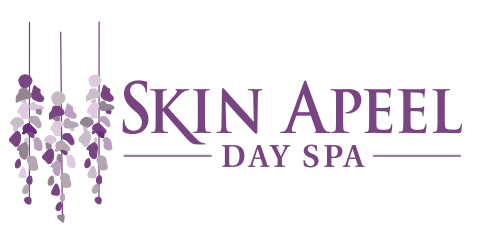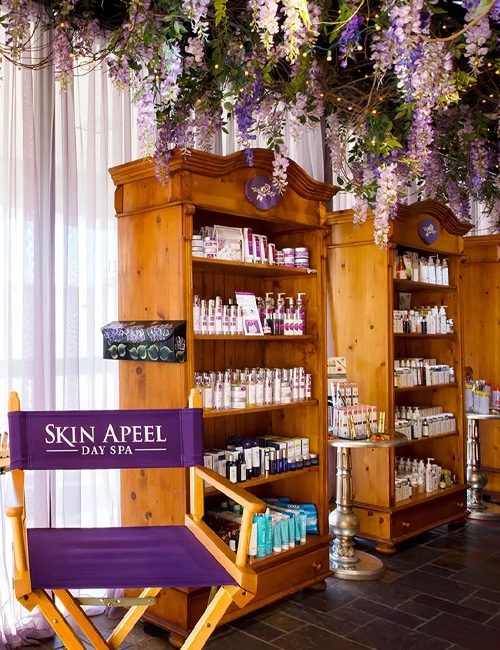Exfoliation is essential for smoother texture, brighter tone, and healthy-looking skin. But should you choose an enzyme facial or a chemical peel? At Skin Apeel Day Spa in Boca Raton, the right answer depends on your skin type, goals, and sensitivity. Here’s a clear comparison to help you decide, plus why we often recommend enzymes for long-term skin health.
What’s the Difference Between Enzyme Facials and Chemical Peels?
| Treatment Type | How It Works | Key Ingredients | Downtime | Best For |
|---|---|---|---|---|
| Enzyme Facial | Gently dissolves dead skin cells on the surface without disrupting the barrier. | Papaya, pineapple, pumpkin enzymes | None | Sensitive or reactive skin, dullness, mild pigmentation, post-summer reset |
| Chemical Peel | Uses acids to break bonds between cells for deeper exfoliation and faster turnover. | Glycolic, lactic, mandelic, salicylic acids (AHA/BHA) | Varies (may include redness, peeling, flaking) | Stubborn acne or PIH, thicker texture, oily/congested skin, some melasma under guidance |
Both treatments should be selected and performed by a licensed professional who understands your skin history and current tolerance.
Enzyme Facials: Gentle, Effective, No Downtime
Enzyme facials use fruit-derived enzymes to loosen dull surface cells, revealing smoother, brighter skin with minimal risk of irritation. They are suitable for:
- Sensitive, reactive, or rosacea-prone skin
- Mature or thinning skin
- Post-summer or post-travel dryness and buildup
- First-time facial guests or those concerned about downtime
Chemical Peels: More Intense, Higher Commitment
Chemical peels use AHA/BHA acids to resurface at varying depths. They can be extremely helpful for specific concerns but require careful timing and post-care.
- Useful for stubborn acne marks, deeper pigmentation, and thicker texture
- May cause visible peeling, redness, or temporary sensitivity
- Higher risk of post-inflammatory hyperpigmentation in deeper skin tones if not managed properly
- Best scheduled in cooler months with strict SPF and barrier support
Peels should always be administered by trained professionals and may be contraindicated if your barrier is compromised.
Which One Is Right for You?
| If This Sounds Like You… | Choose | Why |
|---|---|---|
| Skin is sensitive, dehydrated, or easily irritated | Enzyme Facial | Gentle refinement without barrier disruption or downtime |
| You want an immediate glow before an event | Enzyme Facial | Polishes surface and boosts radiance the same day |
| Concerns include acne scarring, thick texture, or deep congestion | Chemical Peel (professional strength) | Deeper resurfacing can address entrenched concerns |
| History of PIH or melasma; darker Fitzpatrick types | Often Enzyme First; Peel Only Under Guidance | Minimizes risk of rebound pigmentation; requires expert protocol |
| Post-summer skin that feels dull or reactive | Enzyme Facial | Resets tone and texture while supporting recovery |
Why Skin Apeel Often Recommends Enzymes First
We take a gentle, holistic approach that prioritizes your barrier and long-term resilience. Enzyme facials are a top choice for monthly maintenance, brightening safely, and supporting sensitive or maturing skin. They also pair beautifully with hydration facials and LED light therapy for amplified results, without downtime.
Maintain Results at Home
- Enzyme exfoliating mask (2–3×/week) for smooth texture
- Vitamin C serum to brighten and protect
- Barrier-support moisturizer (ceramides, squalane)
- Daily mineral sunscreen to preserve progress
Thoughtful homecare is half the journey. Your daily routine keeps professional results going strong.
Ready to Glow, Gently?
Exfoliation doesn’t have to be aggressive. Experience the brightening power of enzymes at Skin Apeel Day Spa in Boca Raton and discover smoother, more radiant skin, without irritation or downtime.
Visit: 21301 Powerline Rd #215, Boca Raton, FL 33433 | Call: 561-852-8081
People Also Ask
- Are enzyme facials better for sensitive skin than chemical peels?
- Yes. Enzymes refine the surface gently and are typically well tolerated by sensitive, reactive, or rosacea-prone skin.
- Do chemical peels thin the skin?
- When overused or applied without proper assessment, peels can compromise the barrier. Under professional guidance and with adequate spacing, they can be effective and safe.
- How often should I get an enzyme facial?
- Most clients benefit from monthly treatments; pair with LED and hydrating facials for compounded results.
- Can I do an enzyme facial if I have acne?
- Yes. Enzymes help reduce buildup and smooth texture with less risk of irritation than many peels. Your esthetician will tailor the protocol.

